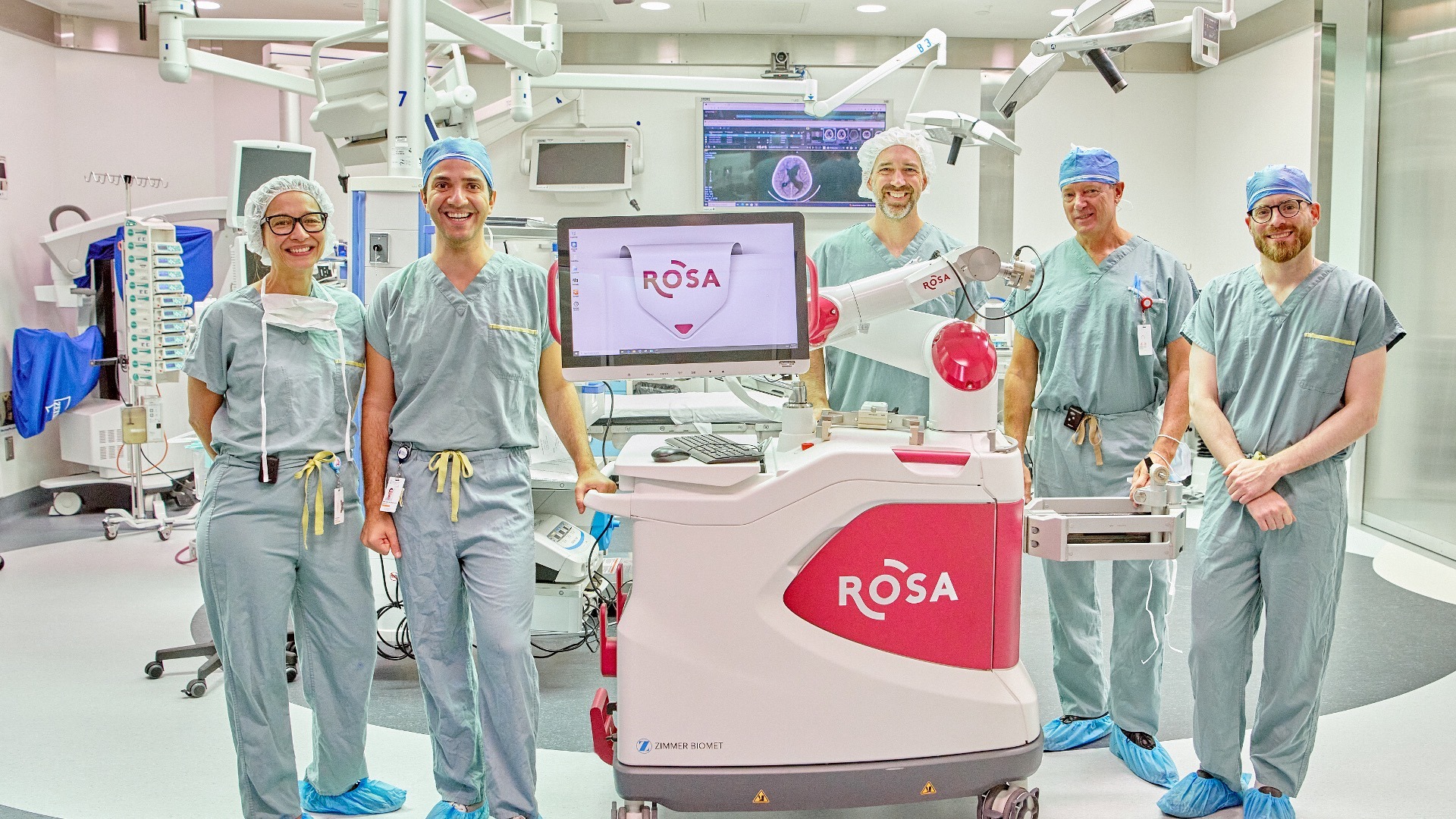
Epilepsy is the most common neurological pediatric condition, affecting 0.5% to 1% of children. Every year, 30% of the 2,000 patients with epilepsy who visit CHU Sainte-Justine experience refractory—or drug-resistant—epilepsy. These statistics haven’t changed in 40 years, despite advances in surgery and the development of numerous drugs.
CHU Sainte-Justine’s integrated brain mapping and neuromodulation program offers young patients an innovative alternative to conventional treatments for drug-resistant epilepsy.
This innovative program is based on a unique multimodal approach combining invasive and non-invasive neuromodulation, including deep brain stimulation (DBS) and transcranial magnetic stimulation (TMS). Our centre is the only facility in Quebec to offer these therapies in a pediatric setting, providing an essential option for patients who are not candidates for temporal resection surgery. Unlike conventional treatment options, neuromodulation is adjustable and reversible, reducing the risk of permanent neurological deficits and improving patients’ quality of life. Neuromodulation also makes it possible to personalize treatment depending on individual needs and how the condition has progressed. Results show a significant improvement in quality of life and a reduction in seizures and hospitalizations.
This project is a lifeline for patients who would otherwise be out of therapeutic options. It offers a glimmer of hope and provides access to care that may radically change their life trajectory.
Lead:
Alexander Weil, Neurosurgeon
Contributors:
Inge Meijer, Neurologist
Aristides Hadjinicolaou, Neurologist
Philippe Major, Neurologist
Dominic Venne, MD, MSc, FRCSC, Chief of Surgery